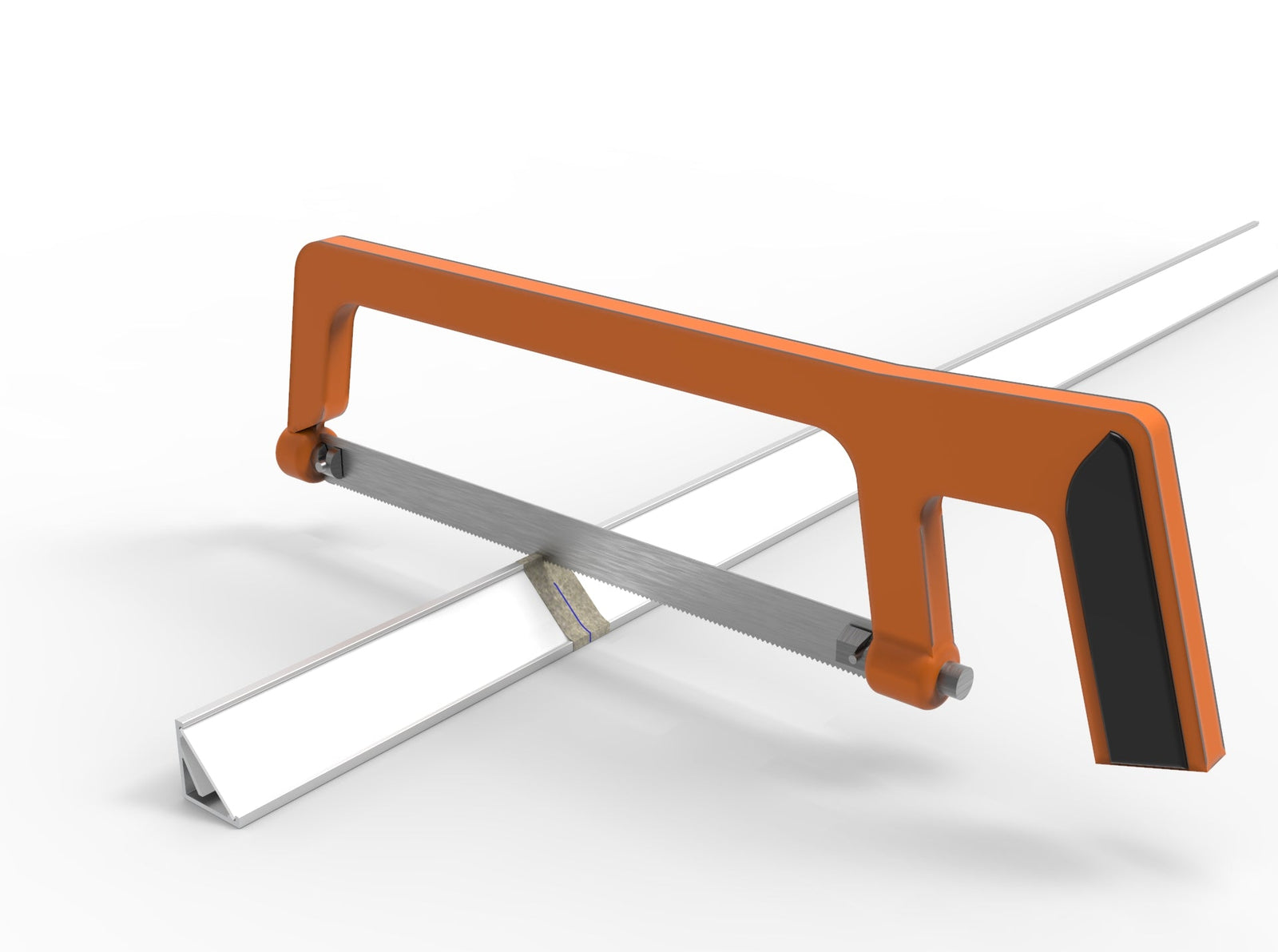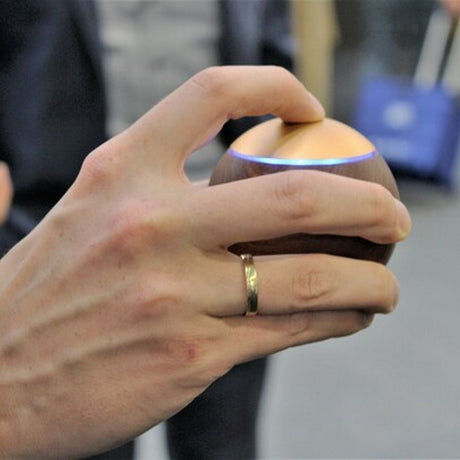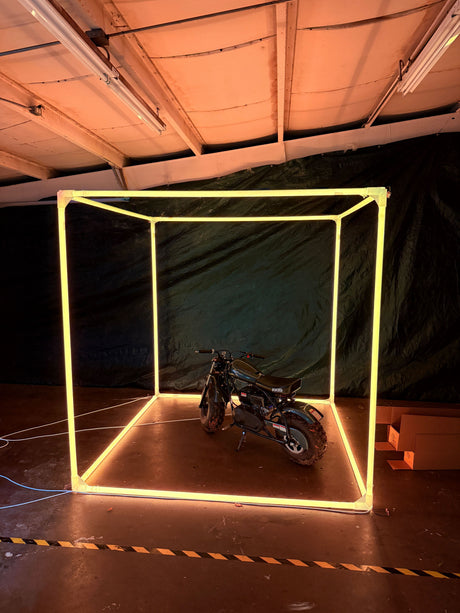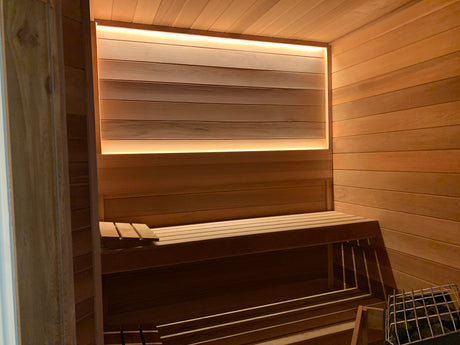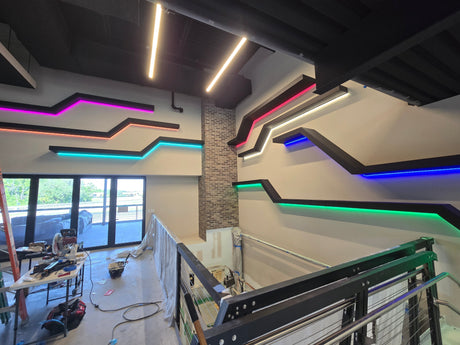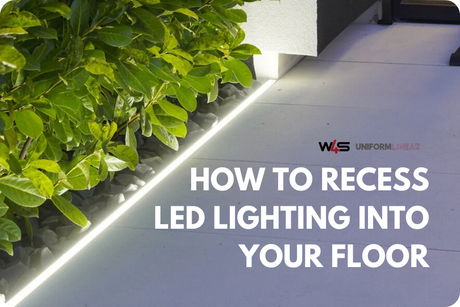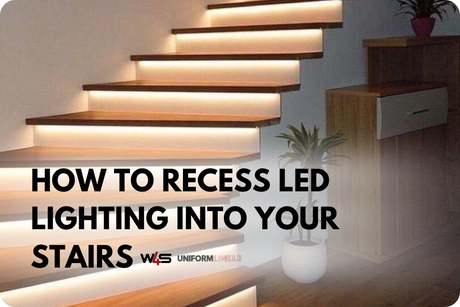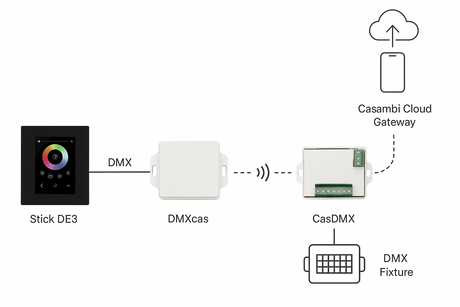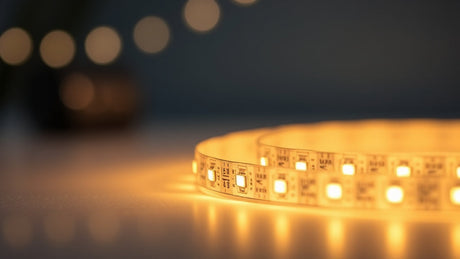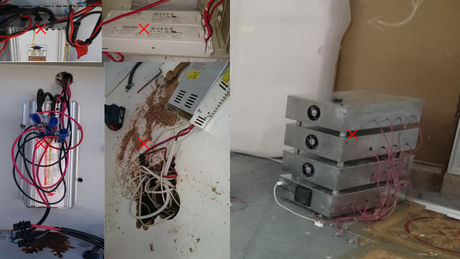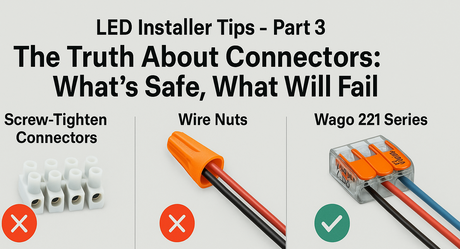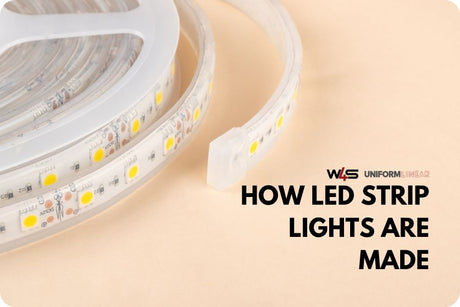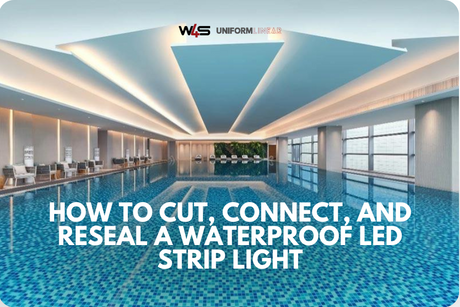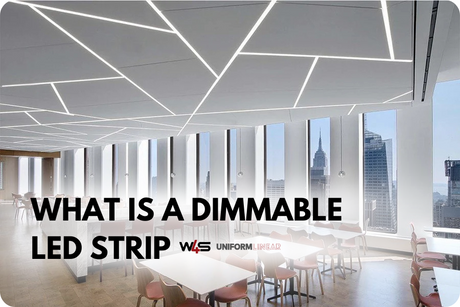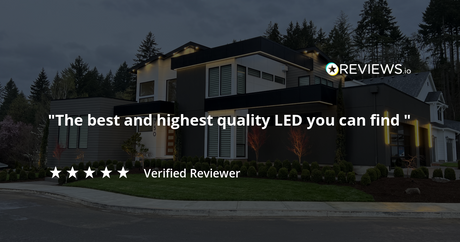Our LED channels are typically supplied in 2m (6.56ft) or 3m (9.84ft) lengths, but many applications will require a custom length of LED channel. This is not a problem, you can easily cut these profiles to length by hand or by machine. Here are some tips to show you how to do it like the professionals do...
How to decide what length to cut your LED profile
The first step to cutting your LED profile is to determine what length you need. LED strips that are used in these profiles have predetermined cutting increments. Our LED strip is manufactured in Europe and has metric cutting dimensions, usually 50mm or 100mm (2" or 4") although some specialized strips may have another dimension. Please read the specifications for the strip you will be using and double check on the strip itself.
The cutting increment or cutting pitch needs to be taken into account when determining the length you want your profile cut to. Ideally, you want to cut your profile only slightly longer than the LED strip to avoid dark zones at the ends. But you also shouldn't cut your profile exactly the same length as the LED strip, because you need to allow for the end caps to be fitted, and the supply cable to be attached.
We recommend dry fitting all your components together before you pick up the saw. As the old adage says, measure twice and cut once!
Video tutorial
How to cut LED profiles by hand
You will need the following tools for cutting LED channel by hand:
- a hacksaw with a fine-tooth cutting blade
- masking or painters tape
- a pen or a pencil
- measuring equipment such as a tape measure
- a compound square for angled cuts
We have found that fitting the cover onto the profile and taping it in place makes it easier to cut whether you are cutting by hand or with a power tool. It is also easier to mark the cutting dimension on the tape than marking the LED profile or cover itself. Another advantage of using tape is that it helps to prevent accidental scratches or splintering while you cut.

Once you have measured and marked your profile and cover, it is easy to cut with a fine cutting blade in a hacksaw. With some larger LED profiles - such as our DPL55-FL suspended lighting profile - it may be easier to cut the cover separately from the profile, but the masking tape is still used for marking.

How to cut LED channels with a power tool
You will need the following tools for cutting LED channel with a power saw:
- a compound miter saw
- Non-Ferrous Carbide blade (for aluminum profiles)
- OSB/Plywood blade (for plastic covers)
- masking or painters tape
- a pen or a pencil
- measuring equipment such as a tape measure
For power cutting, we recommend using a miter saw with a Non-Ferrous Carbide blade to cut aluminum profile and cover together. If you need to cut the cover separately, we prefer to use an OSB/Plywood blade to cut the cover and a Non-Ferrous Carbide blade to cut the aluminum channel.
Don't forget to always use the appropriate safety gear such as safety goggles when using power tools!
Buying ready cut LED channel
For your convenience Wired4Signs USA can cut our LED profiles according to your requirements. And yes we can also cut them to any miter angle you require. Please note your request in the comment box when you check out.
Please note that we do not refund or replace LED profiles and covers that have been cut.
Frequently asked questions
Q: I don't have the specifications for my LED strip. How can I find its cutting increment?
A: Your LED strip will have a line or marking on the cutting increment. There will also be solder pads at each cutting position so that you can attach the supply cable.
Q: What blade should I use on my miter saw to cut aluminum channel?
A: Use a Non-Ferrous Carbide blade on a miter saw to cut aluminum profile.
Q: What blade should I use on my miter saw to cut plastic LED diffusers?
A: Use an OSB/Plywood blade on a miter saw to cut plastic LED covers.
Q: Do I need a power tool to cut aluminum LED channel?
A: No, aluminum LED profiles (and diffusers) can be cut by hand using a hacksaw with a fine-tooth blade.
Q: I need a longer, not shorter, profile than the standard length. Can I join LED profiles?
A: Yes, many of our LED profiles offer a method of joining to pieces together: Some profiles use a mounting clip to connect the two pieces, some have slide-in connector pieces, and some have a joint kit. Look at the accessories that are listed below the profile.
